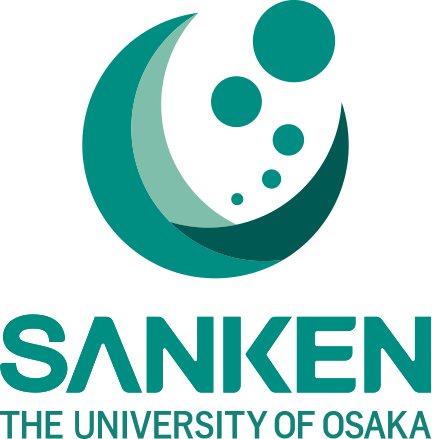Global Engagement
SANKEN promotes sustained international joint research in cutting-edge fields through networking partnerships with outstanding overseas universities and research institutions, and has achieved results that contribute to the world. SANKEN deepens international exchange by dispatching and accepting staff and graduate students, and promotes the development of human resources who can respond to globalization as well as improve the quality of research. By offering international education programs, we are actively working to enhance our international presence and secure global human resources.
In particular, we have close relationships with research institutions such as imec (Belgium), a world-class semiconductor and device information research center, and University of Groningen (the Netherlands), a global knowledge partner of Osaka University.
SANKEN promotes international collaborations with China, Korea, Thailand, the Philippines, Germany, Sweden, Denmark, and other countries through the "International Collaborative Research Laboratory" and the "International Exchange Program" of the JSPS.
Through these collaborations, We will be able to contribute to the development of new materials and technologies in the fields of Materials, Bio, and Process Informatics, Materials DX, Micro and Organic Electronics, Nano-Biotechnology, Bio-functional Mimetic Materials and Systems, Information and Communication Systems, Power Electronics and Next Generation IoT Systems.
SANKEN aims to be a hub for interdisciplinary domestic and international research networks by promoting international joint research and international industry-academia co-creation research.
SANKEN × SDGs

The Sustainable Development Goals (SDGs) are a set of universal goals set forth in the 2030 Agenda for Sustainable Development, which was adopted at the United Nations Summit in September 2015. The preamble of the Goals states the pledge to "leave no one behind" and calls for action by all people to realize a sustainable and inclusive society.
(Reference: Ministry of Foreign Affairs pamphlet "Sustainable Development Goals (SDGs) and Japan's Efforts")
Osaka University's motto is "Live Locally and Grow Globally," and its "Osaka University Charter" states that the university will contribute to the well-being and welfare of society, world peace, and harmony between humankind and the natural environment.
SANKEN also acts under the philosophy of promoting cutting-edge scientific research and striving for a sustainable and better future that leaves no one behind, and works to solve social issues.
Diversity Equity & Inclusion

Osaka University has developed its past efforts to promote diversity and has published the "Osaka University Diversity & Inclusion (D&I) Promotion Declaration". This is committed to promoting and ensuring the development of an environment where diversity is truly accepted and respected, and SANKEN is also conducting diverse diversity and inclusion promotion activities based on this policy.
SANKEN, which brings together graduate students from six different graduate schools at Osaka University, is an optimal place to train researchers who have acquired broad knowledge in a fusion of different fields.
SANKEN Collaboration Promotion Team was established to create an environment where all members of the institute, regardless of job title, position, gender, or nationality, can use their individuality as a weapon and continue to excitedly challenge themselves toward a new self, without fear of failure.
In addition to the promotion of gender cooperation, the team is also promoting a wide range of diversity, equity, and inclusion activities.
The team continues to focus on exchange, communication, and reporting with the aim of creating an environment where all members can make the most of their individuality and shine at their respective workplaces and laboratories, thereby improving the overall environment within the institute.
*Japanese ONLY
Mentoring Program
It is essential for the future promotion of science and technology innovation that young researchers cultivate the advanced professional skills and excellent research abilities needed to conduct research activities as principal investigators and achieve outstanding results in the future. It is also important for young researchers to develop their "transferable skills," which include management skills, problem-solving skills, communication skills, and other versatile skills and abilities, in order to broaden the scope of their future careers.
SANKEN has introduced a mentoring(*1) system for young researchers as an opportunity to develop these skills, and to create a place where mentors can provide a variety of information and advice based on their own experience and knowledge. The purpose of the mentoring program is to contribute to the enhancement of Japan's research capabilities, industrial development through the promotion of science and technology innovation, the creation of new industries, and the strengthening of international competitiveness, as well as to contribute to the well-being of global society. The mentoring program aims to encourage mentees to achieve their goals voluntarily and autonomously, solve problems, develop their careers, and grow socially and psychologically.
(*1) Mentoring is a process by which mentees and mentors build a relationship of trust and engage in dialogue to obtain a variety of knowledge, information, and advice to help them achieve their own goals voluntarily and autonomously, solve problems, develop their careers, and grow psychologically and socially. Mentees consult with mentors on a wide variety of topics, including their own research fields and future career development. Mentors, on the other hand, provide a wide range of advice, including knowledge in their own research field, advice on career development, personal networks, and life experiences.

